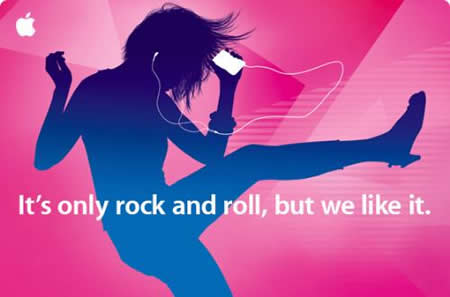Bill Thompson in his BBC column covers a couple of issues I have discussed before on this blog, lack of 3G and conference wifi.
Firstly Bill has been on holiday and has been “suffering” from a lack of connectivity.
I have just endured a week of limited connectivity and it has given me a salutary lesson in what life is like for the digitally dispossessed here in the UK and around the world.
I have been driven to searching for open wireless access points so that I can download my e-mail, sometimes wandering the beach looking for elusive 3G signals just to get my Facebook status updated.
He was on the Norfolk coast and it reminded me of my holiday last November on the Suffolk coast which I blogged about.
Lovely place, however connectivity was seriously lacking. The place we were staying at had no internet which generally isn’t an issue for me as I have a 3G USB stick (or I use my phone as a tethered modem or using JoikuSpot as a wireless hotspot).
However despite the area being very trendy and popular could I get a mobile phone signal? No I could not! No signal from T-Mobile or Vodafone…
As a result I had no connectivity apart from when we travelled to an area with a mobile phone signal or at a place with wifi.

My similar experiences to Bill should remind us that we should never take connectivity for granted and that though 3G is great it still does not cover all of the UK. We when designing websites and e-learning content need to remember that not all our learners will have fast broadband speeds or good 3G connections.Using video and audio is great (you can even now have HD video on the web as seen in this video I put up recently).
As I summarised in my blog post:
It did make me think about those learners who don’t have easy access to the internet, and despite falling costs of both broadband and 3G it can still be sometimes impossible to get online as the area itself does not have broadband or 3G coverage. Rural and coastal areas are often places with minimal 3G coverage and broadband access. Using 3G at 7.2Mbps in the centre of London streaming video and browsing really fast makes you sometimes forget that in some areas this is an impossibility.
As well as having issues with 3G in Norfolk, Bill also had problems with wifi at a conference he was at.
We had wifi access inside the theatre as the conference included tutorials on social networks and online engagement, and the audience were encouraged to contribute questions online so they could be displayed on the screen behind the speakers.
Unfortunately the wifi stopped working about half-way through the first session of the day, and those of us with smartphones and laptop dongles were forced to resort to slower 3G connections.
The reason given was:
It appeared that we had overwhelmed the capacity of the wireless network that the venue had set up for us..I talked to the IT support engineer and he asked me how many of us were trying to connect, and I told him I estimated that thirty to forty people were using laptops and probably the same number had wifi-enabled smartphones. After he had recovered from the shock he explained that the wifi router they had installed could only support twenty simultaneous connections and had crashed when we all tried to log on.
This is now happening too often at events I go to; I blogged about this back in October last year.
One thing I have noticed attending a few events recently is that the wireless networks have been unable to cope with the large number of delegates wanting to use it.
A few years (or even just a year ago) if you attended an event with free wireless, there were probably just a few of you who used it with their laptops. Today if you attend an event, you may find that everyone (virtualy everyone) has a laptop and if not a laptop then a PDA or a phone or an entertainment device with wifi capability.
As a result the wireless networks can not cope… Generally this happens because most wireless routers can only deal with a limited number of wireless clients.
With many more people with laptops, netbooks, wifi enabled phones conference venues need to have a much better infrastructure to cope with the wireless. Likewise if we are to be encouraged to amplify the conference through social media and social networking then we need decent connectivity. If we are also going to live stream video and audio from the conference then we need more than decent connectivity we need excellent connectivity.
I recall an Apple Keynote at WWDC in 2007 when video iChat was demonstrated I believe that due to issues with the entire audience using the 802.11g network, they used 802.11a to ensure that the demo worked.
Sometimes it can work. At the MoleNET Conference at the Emirates stadium which was awash with mobile wireless kit and the LSN had ensured that a robust infrastructure was in place and it worked really well.
Of course it is not just wifi, if everyone has an iPhone at the conference, then there will be issues with 3G connectivity as happened at SXSW in Texas this year. 3G does not work as well inside as it does outside which is one factor, but as happened at SXSW too many people using 3G devices means that there is insufficient bandwidth for everyone. The solution at SXSW was bringing in extra capacity to meet the demand.
Demand is another issue with ADSL and contention ratios. Despite the hype and advertising, for some (me included) it is impossible to get more than 1Mb download speed on ADSL due to not only distance from the exchange but also the contention ratio as more and more consumers sign up for broadband.
What Bill’s column and my blog articles show is that we can’t take (at this time) connectivity for granted, for some it will be restricted because of geography and for others because of excess demand, we need to remember that.
, the BIG Kindle. This is again an eBook Reader from Amazon but with a much bigger screen, 9.7” over the 6” of the Kindle. This makes reading complex pages and PDFs much easier than other eBook Readers. This makes it a much more suitable reading device for some curriculum areas which depend on diagrams and pictures.




